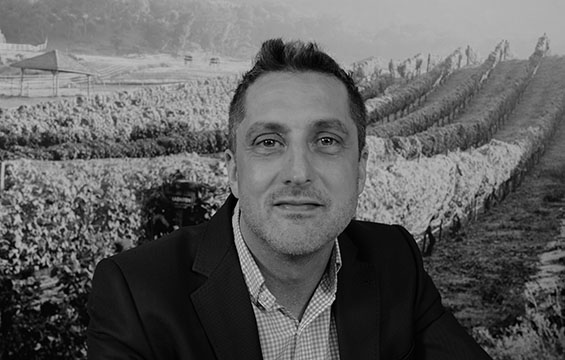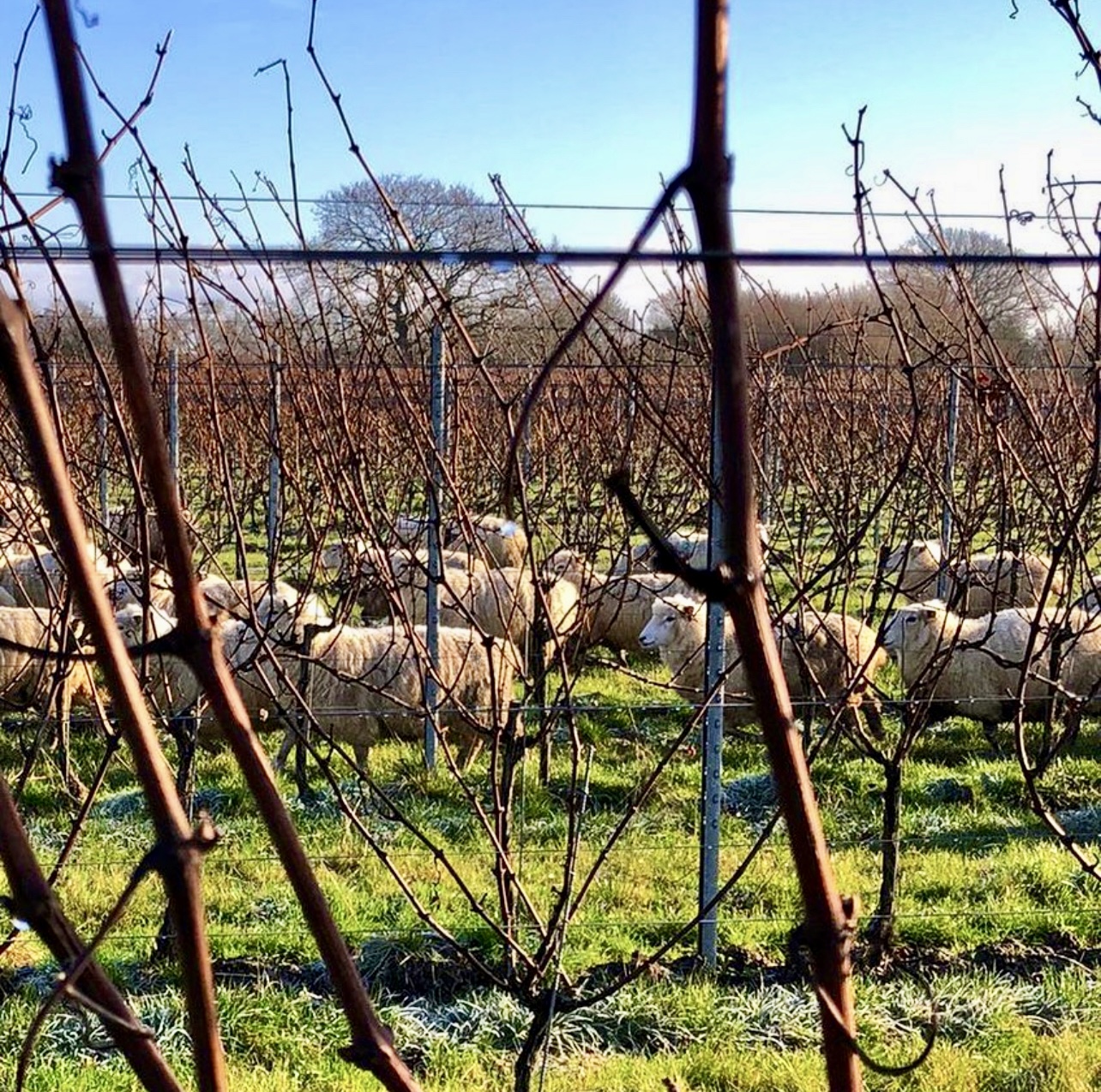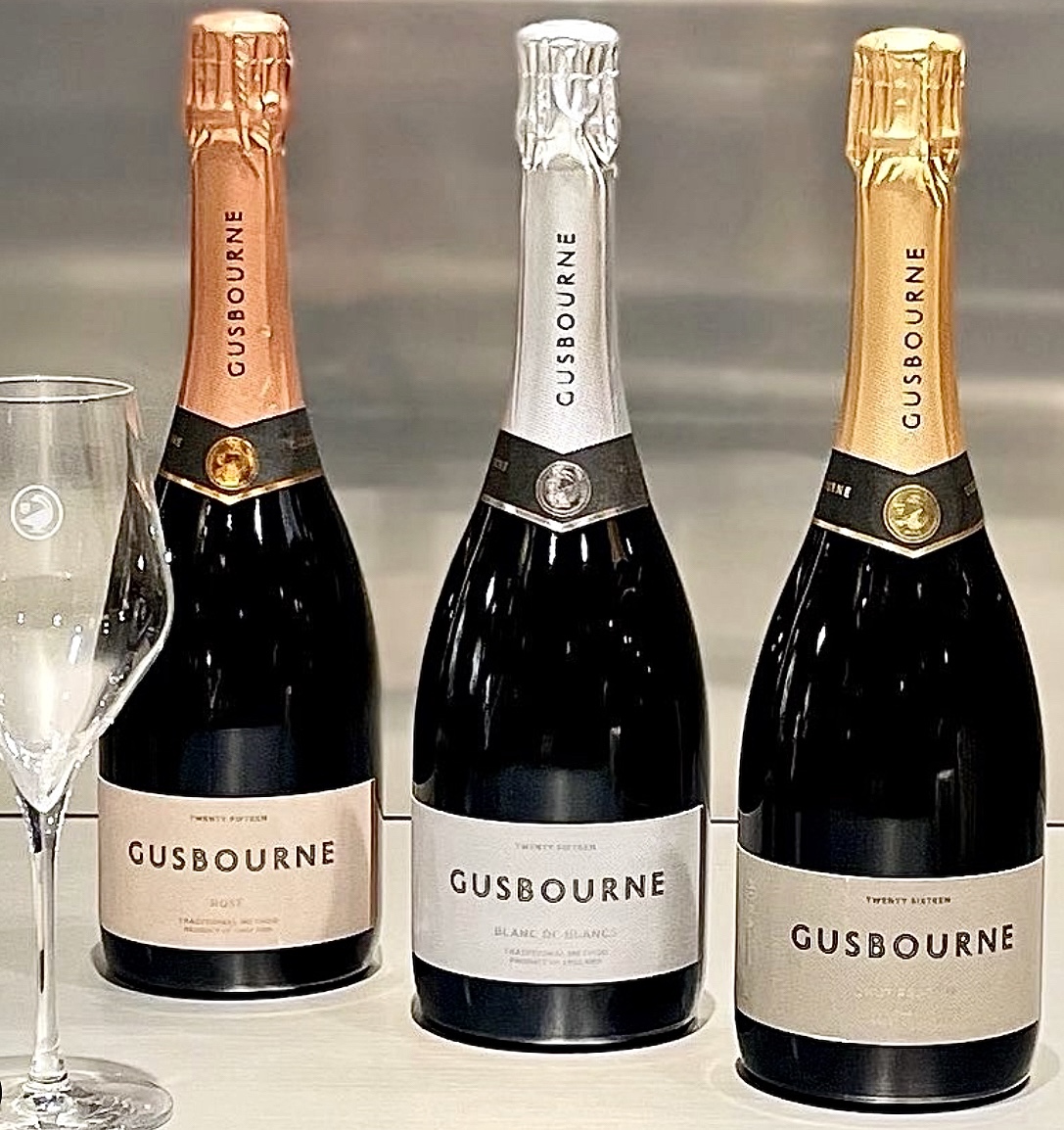 “The notion of English sparkling wine surprises many Americans,” says Eric Asimov in The New York Times, “who still hold the notion of Britain as a culinary wasteland, with lukewarm ale the only beverage. Yet London for a generation has been one of the world’s most exciting restaurant cities. And England, now in its third decade as a sparkling wine producer, is demonstrating that its bubbly output can be superb.”
“The notion of English sparkling wine surprises many Americans,” says Eric Asimov in The New York Times, “who still hold the notion of Britain as a culinary wasteland, with lukewarm ale the only beverage. Yet London for a generation has been one of the world’s most exciting restaurant cities. And England, now in its third decade as a sparkling wine producer, is demonstrating that its bubbly output can be superb.”
The future of English sparkling wine is indeed looking bright. Due to global temperature increases, England, a country once too cold for grape growing, has evolved into an award-winning wine region, especially known for traditional-method sparkling wine. Most of the country's vineyards are located in the southern counties of Kent, Sussex and Hampshire, close to the coast, where the climate is warmer and drier than more northerly areas, but cool enough for the grapes to retain ample acidity.
Gusbourne is one of England’s top producers of sparkling wine. Founded in Kent, in 2004, by South African Andrew Weeber, the ancient estate traces its roots back to the 1400s when it was owned by nobleman John de Goosebourne. Upon Weeber's arrival, vineyards were planted with the three classic Champagne grape varieties: Chardonnay, Pinot Noir and Pinot Meunier. Today, Gusbourne's 100% vintage-dated wines are produced from 230 acres of estate vineyards in Kent and Sussex.
Grape Collective caught up with Charlie Holland, Gusbourne’s winemaker for the past decade, to find out more about the winery and the exciting future of English Sparkling wine.
Lisa Denning: Can you tell us a little bit about your background and how you got into winemaking?
Charlie Holland: I fell into wine as a lot of English people do. It's not necessarily a career path that you follow to get into it, but I had the opportunity to do a vintage in Australia back in 2000, 22 years ago, and I fell in love with it, and fell in love with the whole alchemy of making grapes into wine. I then came back to the UK and studied winemaking at university, and then traveled the world and went to work in lots of different places. To be honest, I thought that was my ticket to somewhere warmer and more exotic, but then, the opportunity came up to come back to England to make wine. The industry had just changed dramatically and England was producing some great wine all of a sudden, and we were on the cusp of something really exciting. So, after all that, I decided to stay in England and I can’t think of more exciting place to be making wine at the moment.
Can you tell us about the history of the winery, Gusbourne Estate?
Gusbourne dates back to the 1400's. So it goes back a long way when we were actually owned by a man called John de Goosebourne—that’s a Norman name. And that was the first reference to the estate. But the estate has been long known for producing amazing fruits. Kent, where we're based, is known as the garden of England so we’re surrounded by orchards and soft fruit and that sort of thing.
It wasn't until 2004 that we planted the first vineyards at Gusbourne, and our founder was a South African man, Andrew Weeber, who grew up in Stellenbosch and was surrounded by vineyards and came to England and saw these gentle south facing slopes at Gusbourne and thought, “We'll plant some grapes here.” So he planted with the traditional three sparkling varieties, Chardonnay, Pinot Noir, and Meunier and the rest I guess, is history. So, we're going into all that time and going from strength to strength, focusing on sparkling wine production.
Can you tell us about the terroir of Southern England? What makes it good for producing sparkling wine?
 England has a lot of chalk, and chalk is closely associated with making some of the best sparkling wine in the world. In fact, the geology, which you have in Northern Burgundy, Chablis and Champagne is based on this chalk basin, the Paris basin, which essentially resurfaces over the channel in the Southeast corner of England. So, we have a very similar geology to what you find in Champagne. But also, there's other soils. Some of our soils are, basically, more heavier soils. Some clay, lots of really interesting soils.
England has a lot of chalk, and chalk is closely associated with making some of the best sparkling wine in the world. In fact, the geology, which you have in Northern Burgundy, Chablis and Champagne is based on this chalk basin, the Paris basin, which essentially resurfaces over the channel in the Southeast corner of England. So, we have a very similar geology to what you find in Champagne. But also, there's other soils. Some of our soils are, basically, more heavier soils. Some clay, lots of really interesting soils.
What I think is important is, we have the right climate for making sparkling wine. So there is concept that you need a hundred days from, from the grape vines flowering to when you actually pick the grapes. And what that allows you to do is develop all this lovely flavor, but still retain this great acidity, which is the backbone and the structure of the wine. And there's not many places outside of Champagne that can actually achieve that. But the south of England is perfect for that.
Have you noticed since your time there as a winemaker, changes in climate that are affecting how you are making the wine?
Absolutely. I think in the last 20 years I've been making wine in England and the level of ripeness that we can achieve now just wasn't possible 15 years ago. So we're seeing levels of warmth and sunshine increasing and we're able to ripen the grapes to a much higher level than we used to.
Of course, what comes with that, climate change, is unpredictable weather patterns, so it's not getting any easier to make wine or grow grapes in England. Frosts, unpredictable weather, storms, that sort of thing are happening. The wrong weather at the wrong time, so it's still a challenging place to make wine. But if you give it its due diligence and you try really hard, you can make exceptional wines there.
Can you tell us about the grapes that you grow?
Yeah, so we focus on just the three classic varieties, Chardonnay, Pinot Noir, and Meunier, that have been used to make the best sparkling wines in the world for hundreds of years now. They have a lovely synergy within them, that helps to lift the wines. The Chardonnay forms that backbone structure and gives the lovely acid lines to the wines. Pinot Noir gives a lovely texture. And then Pinot Meunier is there to add some fruit to the mid-palate, so they work really well together. We essentially follow the same traditional method that you would find in places like Champagne.
There's lots of ways of making your wine fizzy and sparkling, but to achieve the best quality, you have to use the bottle fermentation method. So, we're quite strict on how we do that. The other really important thing with English wine is, you need to give it time. When the wines are young, they're lovely and fruity, but can be a bit one dimensional. But these wines age gracefully for decades. So, we have to be very careful not to sell them too early. Leave them in the cellar after the second fermentation on their lees, the yeast sediment, so they pick up a delicious tertiary, toasty, pastry character. So that's a key part of what we do as well.
A lot of people compare English sparkling wine to Champagne. What makes your wines distinctive from that famous French bubbly?
And our sparkling wines are distinctive. It's funny because there's an obvious historic comparison to Champagne because we use the same production methods, the same grapes. But I think they're very, very different. I'm a huge Champagne fan, drink a lot of Champagne, but I think that they're very different products.
With English sparkling wine, I think our calling card is the acidity which is really important for freshness and vibrancy in wine. It gives that crispness and elegance to the wine. And I think English wines have that in spades. So, it's about managing that acidity, right? So it's lovely and fresh. Champagne, generally, can be a bit fuller, a bit rounder, a bit richer in style, but I think the two of them work very differently.
As far as the challenges that you face in the vineyard, what are some of the things you do to combat the mold, mildew, frost?
Yeah, lots of things. It's a challenging place to make wine. Frost is a big risk for us. Usually in April, you're at frost risk when the buds start to come out and they get hit by the frost. We only use our own fruit at Gusbourne, so we don't buy any fruit or sell any fruit because it’s really important for our sense of place and providence and have wines that express themselves. But it also means all your eggs are in one basket, so to speak, so you have to be extra careful protecting them. So when the frosts come in, we have these things called cold air drains. Frost follows the path of least resistance, a bit like water. So you find it flows down to the coldest parts of your vineyard. So what we do is, we put these cold air drains into the coldest spots and they will, when all the cold air accumulates, suck up all the air, and throw it up a hundred meters into the air where it mixes with all the hot air above it, therefore protecting your wine. So we have lots of these dotted around the vineyards to evacuate the cool air. And then you get through to flowering.
Flowering generally happens in England in the middle of June, it usually coincides with Wimbledon, for any tennis fans out there. And people will know that it usually rains during Wimbledon and what you need is a nice, dry, warm period during flowering, so that can have a big impact on yields. Sometimes with poor flowering, you could potentially lose half of your crop. So again, mitigating that is important. And then you're right, we're a humid, cooler region. So mildews—that sort of thing—can be problematic.
One of the reasons we only use our own fruits is because you've got absolute control over the quality from start to finish, and we make sure that nothing comes into the vineyard that is diseased. Everything is triaged and dropped in the field and only the healthiest grapes come into the winery to make our wine. So, a lot of work, I'd say a lot of blood, sweat, and tears, real pioneering spirits. But, if you're willing to make the sacrifice and put the effort in, you can make some great wines in England.
Let's talk about sustainability measures. Is it even possible in a climate like England’s to farm organically?
 There are some organic farmers growing grapes in England. It is difficult in our climate, but sustainability is at the top of our list, and the top of lots of people's lists, and our green credentials are really important and they will increasingly be, as well. We've also got a responsibility to our land. You only get out what you put in, both negatively and positively, and that if you respect your vineyards, especially if you own vineyards, then you've got to be careful in treating correctly. So, we're very conscious of doing that, and we've introduced lots of things.
There are some organic farmers growing grapes in England. It is difficult in our climate, but sustainability is at the top of our list, and the top of lots of people's lists, and our green credentials are really important and they will increasingly be, as well. We've also got a responsibility to our land. You only get out what you put in, both negatively and positively, and that if you respect your vineyards, especially if you own vineyards, then you've got to be careful in treating correctly. So, we're very conscious of doing that, and we've introduced lots of things.
We can mechanically get rid of weeds now. So we don't use any herbicides, in terms of our sprays. We still have to use fungicides because of the climate we're in, but we have special sprays that can recycle out 70% of the spray residue, so you're not spraying into the atmosphere. So, you only use exactly the minimum you can to do that. And of course we're using a lot of organic materials, lots of cover crops, trying to do wild meadows to increase the diversity of insect life, and that sort of thing. So, working really hard within the parameters we have.
How would you describe the house style of your sparkling wine?
I think, as we've mentioned before about crispness, freshness is really important for the wines. And I think ours have that. We're actually based on two soils where we are. About a third of our vineyards are on chalk which gives a lovely elegance, poise and structure. But two thirds of our vineyards are actually on heavier soils. So, clay soils with loam, and they generally produce wines that are perhaps a bit more muscular, a bit rounder in style. But, I think if you're comparing our wines to other English ones, they're generally on that spectrum of fuller, riper, depending on vintage.
We only make vintage wines, as well, as it’s a key part of our story. The reason we do that is because if you're going to all this trouble of just growing your own grapes, then hand selling the wine in a bottle shop or in a fine restaurant with a sommelier, you want to talk about not only where the wines are made and by whom, but also when they were made. So vintage is also a really important part of our message. And that's not something that everyone else is doing. So, vintage wines, own fruit, and probably a fuller style of wine.
What's the best way to get the word out about English wine, because a lot of people still don't even realize that England makes wine, let alone sparkling wines?
 It's really interesting because in England now when you go abroad, it's like it was in England 15 years ago, when English people were saying, "We make wine here?” They didn't know. And now there's acceptance in England that you can make, especially with sparkling wine, really good wine in England. But now you go abroad and it's the same thing where people just don’t know.
It's really interesting because in England now when you go abroad, it's like it was in England 15 years ago, when English people were saying, "We make wine here?” They didn't know. And now there's acceptance in England that you can make, especially with sparkling wine, really good wine in England. But now you go abroad and it's the same thing where people just don’t know.
People don't associate England with wine, so the best thing you can do is to open bottles of wine for people, liquor on lips and say, "Here you go, try this wine, see what you think of it." And genuinely, nine out ten times people try English wine, they say, "Wow, this is amazing." And it's just not something you've tried before and it is different. So the best thing you can do is to get people to experience and try the wines. And that's the hard bit. And once they've done that, they appreciate the quality and they're happy to buy the wines.
How have the wines been received by wine critics? How have they done in the various competitions they have entered worldwide?
They do really well. I think they're quite impactful, English wines in general, and Gusbourne wines in particular. In the early days the sommelier community was really supportive of English wine. So the gatekeepers were happy to show people the wines, but then again, as soon as they started entering competitions, that was the key, I think the success, was when we started winning them.
So we found that even from the early days, these wines were quite impactful and they stood up really well to other English wines, but also internationally. They really held their own in that environment. And they've gone on to win lots of awards, lots of trophies within competitions. So, it’s very important for our benchmarking as an early industry to say, "Hey, this is how we're tasted by professionals, masters of wine, sommeliers. And they can taste our wines and say, "Yep, these stand up with some of the best sparkling wines in the world."
I think it's really recognized now that we make outstanding wines in England. So, it’s very exciting for the future.










